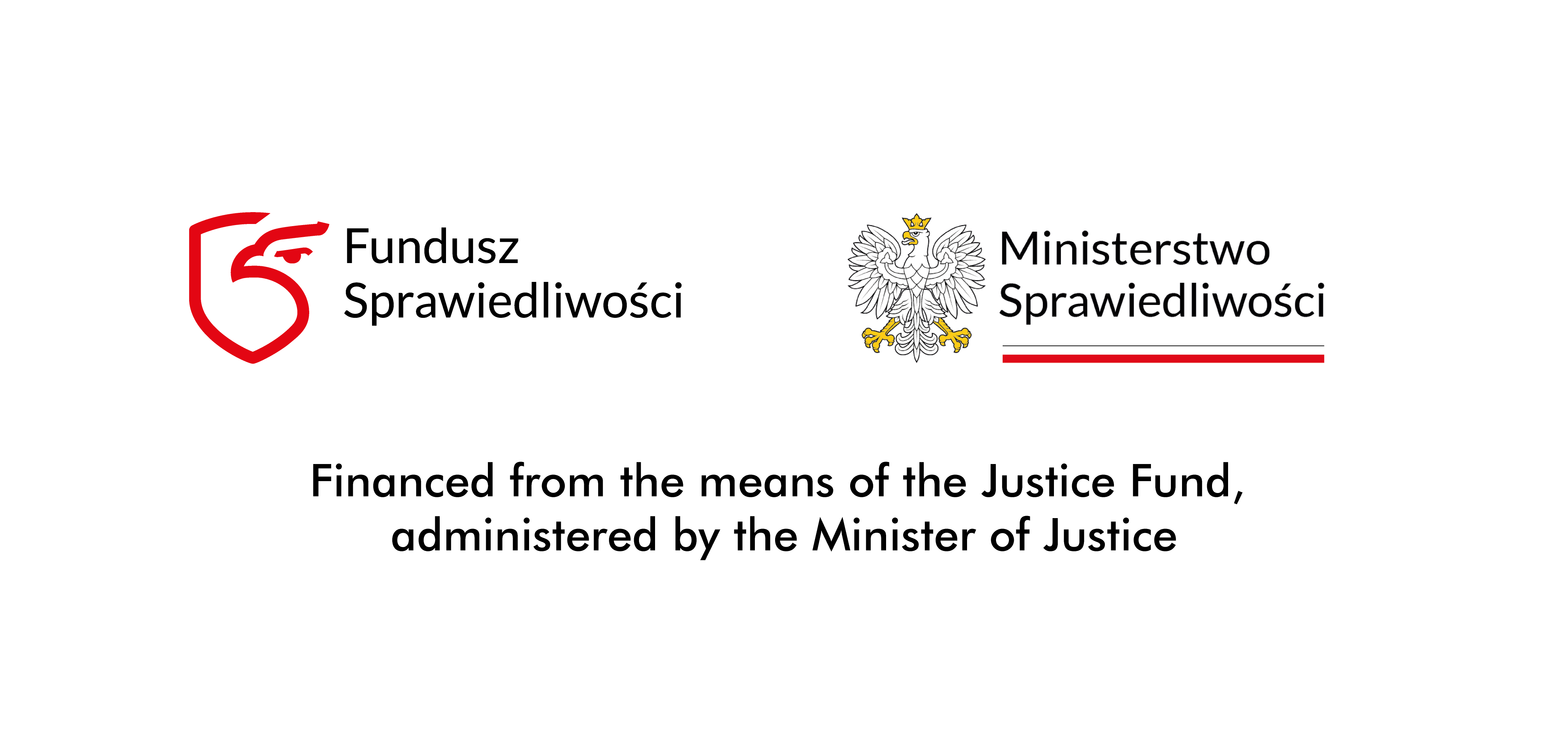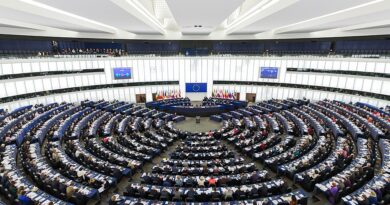European Commission prioritizing LGBT agenda over general interest of the EU
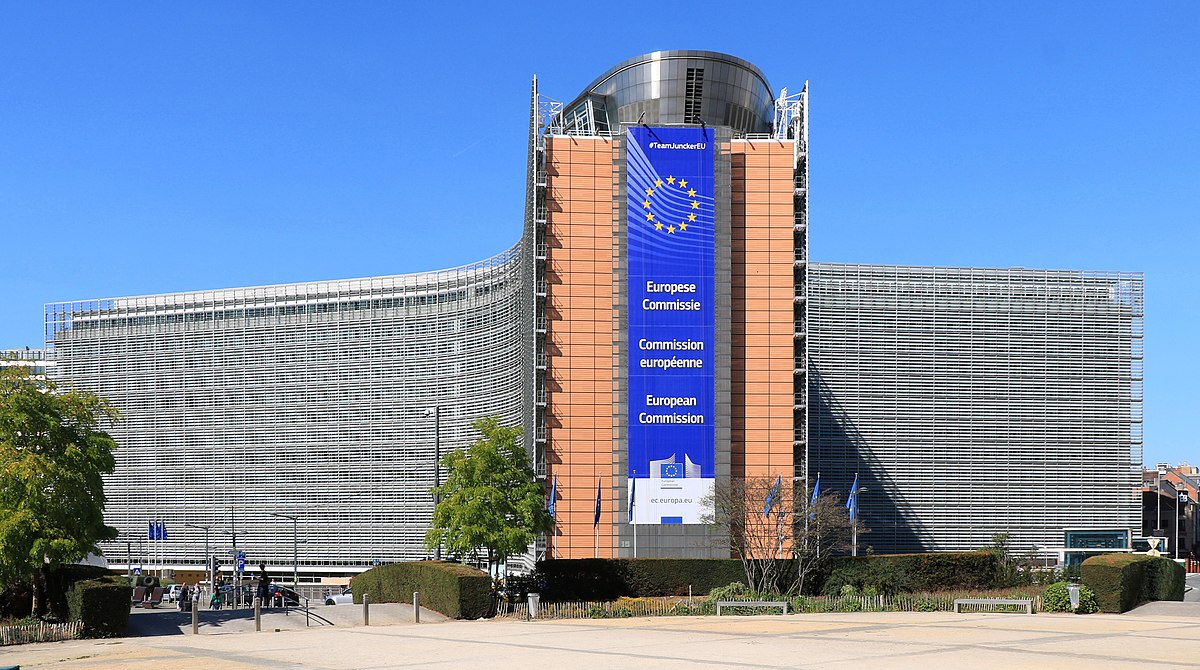
To get an illustration of how much the European Commission has become ideologically biased in its dealings with EU member states, one only needs to look at what is happening on the LGBT front, in Poland and Hungary on one hand and in Spain on the other.
Agnieszka Golańska-Bault
Poland and Hungary are both governed by right-wing conservative coalitions whose ideological reference is Christian democracy. People like Polish President Andrzej Duda, Polish PM Mateusz Morawiecki, and Hungarian PM Viktor Orbán like to quote Robert Schuman, one of the fathers of European post-war integration, whose beatification process in the Catholic Church is under way, and the two countries have the institution of marriage enshrined in their respective constitutions as being the union of a man and a woman.
Spain, in the meantime, is governed by an openly progressive coalition of the Socialist Party (PSOE) and the Unidas Podemos far-left grouping, which includes the populist far-left party Podemos and communists from Izquierda Unida. Since Pedro Sánchez’s government does not have a majority in parliament, it also has to get the support of the left-wing regional parties that share Unidas Podemos’ progressive agenda, but also want full independence for the regions of Catalonia and the Basque Country. One of them, Bildu, in the Basque Country, even placed on its lists of candidates for the May 28 local and regional elections some 40 people who had formerly been convicted of far-left terrorism (linked to the ETA terrorist organization), including seven with blood on their hands.
Since the ruling conservatives in Poland and Hungary are social conservatives and not liberal conservatives, their view on the role of the state in the economy does not differ much from that of the progressivists on Spain’s left, in particular Sánchez’s PSOE party. Where they differ very much, however, is in their view of European values and how they define such things as marriage and the right to life. In contrast to Poland and Hungary, Spain has same-sex marriages, and since earlier this year people have been able to change their “gender”, that is, the biological sex they identify with, by a simple declaration. This includes minors, who can now proceed with sex change procedures without parental consent if they are at least 16, and with parental consent if they are younger.
Ideological disputes
In theory, all this should not have any impact on the European Commission’s attitude towards those three countries, as “the Commission shall promote the general interest of the Union” (Art. 17 (1) of the Treaty on European Union) and as family law is a competence reserved for the Member States, any decision taken at EU level on family law with cross-border implications has to be approved by the Council (the national governments) on condition of the unanimity of all Member States (Art. 81 (3) of the Treaty on the Functioning of the European Union). In other words, if EU institutions were to abide by the treaties, it would not be for the Commission to take sides in ideological disputes and to promote, for example, one particular vision of the family throughout the EU.
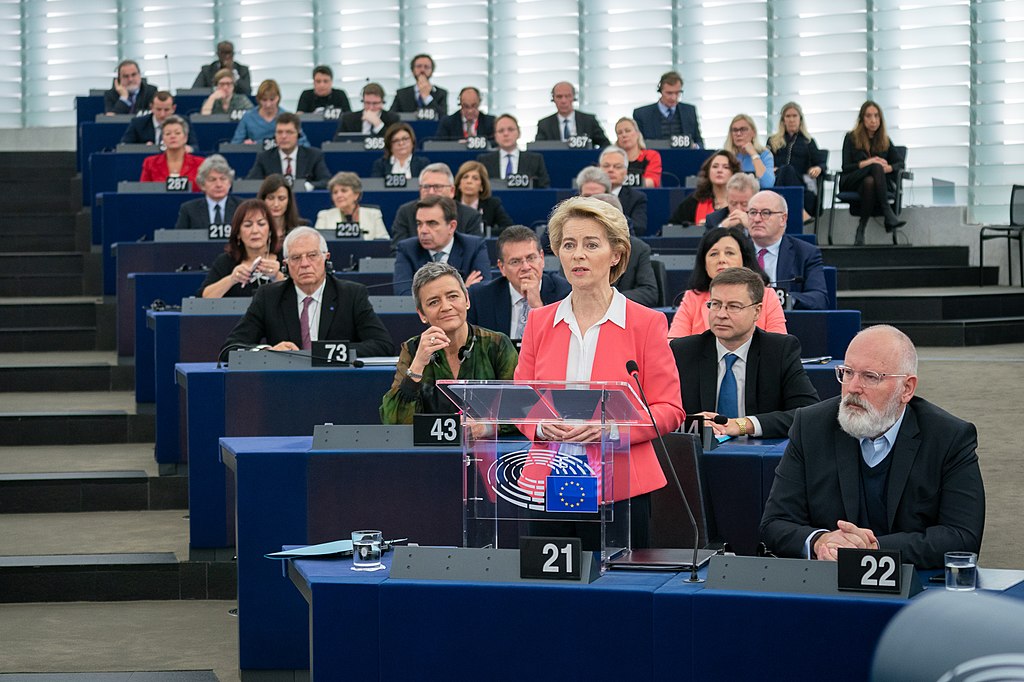
Nevertheless, in the case of Spain, the absence of a parental consent requirement for access to abortion or sex-change procedures that may have irreversible consequences for one’s body, including permanent infertility, could be questioned by the European Commission, including by taking the issue to the Court of Justice of the European Union, as it can probably be seen as infringing the EU’s Charter of Fundamental Rights, specifically Article 14 (3), which states that “the right of parents to ensure the education and teaching of their children in conformity with their religious, philosophical and pedagogical convictions shall be respected”.
In that regard, in February the vice-chair of the Madrid College of Physicians warned that: “In Spain, in the last year there has been an increase of more than 2,000 percent in the number of demands from minors who say they are trans. The only thing they are offered with this law is affirmative therapy. Treatment is started and professionals are not allowed to do exploratory therapy or make a comprehensive assessment of an adolescent who manifests a deep discomfort, because that would make them liable to fines of €150,000, professional disqualification, and prison sentences.”
This, in turn, could very well be seen as also going against Article 24 of the EU’s Charter of Fundamental Rights (“Children shall have the right to such protection and care as is necessary for their well-being” and “In all actions relating to children, whether taken by public authorities or private institutions, the child’s best interests must be a primary consideration”).
In fact, it is not only the Madrid College of Physicians but the main mental health specialists’ organizations in Spain that have warned against this “Law for Real and Effective Equality of Trans People and for the Guarantee of LGBTI Rights”. These organizations include the Spanish Society of Psychiatry and Mental Health (SEPSM) and the country’s main pediatric psychiatrists’ organization AEPNyA.
It is also worth noting that even before being voted into law, the new regulations that allow children to “change sex” (or “gender”) without parental consent had been strongly criticized, to no effect, by both the General Council of the Judiciary (CGPJ), which is the judiciary’s supervising body, and by the Council of State, the main advisory body to the executive branch.
Christian lawyers
Despite all this, instead of asking the Spanish government for explanations and considering taking the case to the CJEU, the European Commission has been busy attacking Hungary for its Child Protection Law, which the head of the Spanish lawyers’ association Abogados Cristianos says would actually be much needed in Spain to protect children not only from the social engineering brought about by the Trans Law, but also from LGBT indoctrination and exposure to very crude sexual content where local governments are in the hands of the far left (see The Spanish Experience, a report by the Spanish Foundation of Christian Lawyers).
The law passed in Hungary in June 2021, which the European Commission President Ursula von der Leyen has called “a shame”, is meant to combat pedophilia and also protect children from forced early sexualization and pornography, while preserving the rights of parents to decide on their education. The promotion of LGBT lifestyles and “gender reassignment” practices is now banned in Hungarian schools and in materials aimed at minors. NGOs wishing to inform minors about these topics have to register with the authorities, and children’s books with stories containing LGBT characters must be sold with a warning for parents on their cover.
Earlier, in late 2020, the Hungarian National Assembly adopted an amendment to its constitution to protect the right of children to be identified with their biological sex, and so it is now impossible in Hungary for a minor to be identified on his or her documents and in the civil registry other than by his or her true sex.
On July 15, 2021, the European Commission announced it was starting legal action against Hungary “for violations of fundamental rights of LGBTIQ people” in connection with the new child protection law passed in June. The Commission’s announcement began: “Equality and the respect for dignity and human rights are core values of the EU, enshrined in Article 2 of the Treaty of the European Union. The Commission will use all the instruments at its disposal to defend these values.”
The press release went on to explain that “on 23 June 2021, Hungary published a law that lays down a number of restrictive and discriminatory measures; in particular, it prohibits or limits access to content that propagates or portrays the so-called ‘divergence from self-identity corresponding to sex at birth, sex change or homosexuality’ for individuals under 18”, and that, whereas “the protection of minors is a legitimate public interest which the EU shares and pursues,” it is considered that “Hungary has failed to explain why the exposure of children to LGBTIQ content as such would be detrimental to their well-being or not in line with the best interests of the child.”
LGBT lobby
For that matter, the European Commission’s views on the best interests of the child seem to be more in line with those of the Spanish ruling coalition than those of Central Europe’s conservative governments. In her State of the Union address of 2020, Ursula von der Leyen was unequivocal about this, when she said, bowing to gender ideology and the demands of the LGBT lobby, that “being yourself is not your ideology, it’s your identity,” and that “to make sure that we support the whole community, the Commission will soon put forward a strategy to strengthen LGBTQI rights. As part of this, I will also push for mutual recognition of family relations in the EU. If you are a parent in one country, you are a parent in every country.”

And indeed, in November 2020, the European Commission presented “its first-ever strategy on LGBTIQ equality in the EU”. On that occasion, the Commissioner for Equality, Helena Dalli, said: “Today, the EU asserts itself, as the example to follow, in the fight for diversity and inclusion. Equality and non-discrimination are core values and fundamental rights in the European Union. This means that everybody in the European Union should feel safe and free without fear of discrimination or violence on the grounds of sexual orientation, gender identity, gender expression or sex characteristics. We are still a long way away from the full inclusion and acceptance that LGBTIQ people deserve. Together with the Member States, I trust we can make Europe a better and safer place for all. In this regard, the strategy calls on those Member States that do not have national LGBTIQ equality strategies to adopt one, addressing the specific equality needs of LGBTIQ people within their country.”
Apparently, however, the Commission’s case against Hungary’s attempt to protect children from that kind of indoctrination and early sexualization was not strong enough, in light of the EU core principles enshrined in the EU treaties. The Commission has therefore based its case mainly on two unrelated directives that have to do not with the EU’s fundamental values or family law (for which EU institutions have no jurisdiction over member states, at least according to the EU treaties), but with the functioning of the bloc’s Single Market: “First, the Audiovisual Media Services Directive (AVMSD) has been breached as regards standards for audio-visual content and the free provision of cross-border audiovisual media services, as Hungary put in place unjustified restrictions that discriminate against people based on their sexual orientation and are moreover disproportionate. Second, some of the contested provisions infringe the e-commerce Directive (namely the country of origin principle). The law prohibits the provision of services displaying content showing different sexual orientations to minors, even if these services originate from other Member States. Third, Hungary failed to justify the restricting of cross-border information society services.”
Child protection
In the “Background” section of its press release, the Commission stated the motives behind its action against Hungary, recalling that “on 12 November, the Commission presented the first-ever EU Strategy for lesbian, gay, bisexual, trans, non-binary, intersex and queer (LGBTIQ) equality, as announced by President von der Leyen in her 2020 State of the Union Address.”
Together with its action against Hungary’s child protection law, the European Commission announced it was also taking action against Poland for “the so-called ‘LGBT-ideology free zones’ resolutions adopted by several Polish regions and municipalities.” In her 2020 State of the Union address, the President of the European Commission had said about those resolutions: “So I want to be crystal clear – LGBTQI-free zones are humanity free zones. And they have no place in our Union.”
Earlier, in July 2020, Equality Commissioner Helena Dalli had boasted on Twitter that she had blocked funds for some Polish local governments who had adopted this kind of resolutions, writing: “EU values and fundamental rights must be respected by Member States and state authorities. This is why 6 town twinning applications involving Polish authorities that adopted ‘LGBTI free zones’ or ‘family rights’ resolutions were rejected.”
There did not seem to be any legal basis for that decision. As a matter of fact, the lack of such a basis was later confirmed, in January 2023, when the European Commission quietly dropped the infringement procedure it had been conducting before the CJEU against Poland over the misnamed (by the European Commission itself) “LGBTQI-free zones”.
The reality behind the campaign orchestrated by EU institutions, and in particular the European Parliament and the European Commission, is that in 2019–2020 a number of Polish local governments adopted resolutions stating that they would not seek to promote LGBT ideology within the exercise of their power, and in particular through the schools under their responsibility. Those resolutions are simple declarations of intent and have no legal effect. Furthermore, they contain no indication that those local governments intend to discriminate against LGBT people, just that they intend to respect parents’ right to raise their children according to their own convictions and other constitutional rights. Some of the resolutions targeted by EU institutions and the Western European mainstream media did not even mention LGBT ideology, but reproduced the Local Government Charter of the Rights of the Family produced by the Polish conservative lawyers’ association Ordo Iuris, whereby local governments declare their intent to promote and support the family understood in the same spirit as in the Polish constitution, that is, as a man and a woman with children.
Although it has now dropped its case at the CJEU, the European Commission has not stopped exerting financial blackmail against those Polish local governments which have not yet repealed resolutions of this kind.
Trzaskowski’s agenda
On the other hand, the Commission has never bothered to react to what prompted the adoption of such resolutions by local governments throughout Poland, namely the LGBT+ Declaration made by the Mayor of Warsaw, Rafał Trzaskowski, in February 2019. In that declaration, Trzaskowski promised to teach “anti-discrimination and sex education taking into account psychosexual identity and gender identification” in the Polish capital’s schools, as well as the highly controversial WHO Standards for Sexuality Education in Europe as published in 2010 by the WHO Regional Office and the German Federal Centre for Health Education (BZgA) (which advocate teaching masturbation to children from kindergarten age and promote both the normalization on equal par of all sexualities and the recourse to abortion for unwanted pregnancies, the latter being a practice that is forbidden in Poland). Moreover, the Mayor of Warsaw also pledged that the City of Warsaw would only work with companies that actively promoted LGBT people, which is very probably in breach of the Polish constitution’s principle of neutrality of public authorities with regard to religious, political, and philosophical convictions, and could also be seen as violating EU rules on free competition.
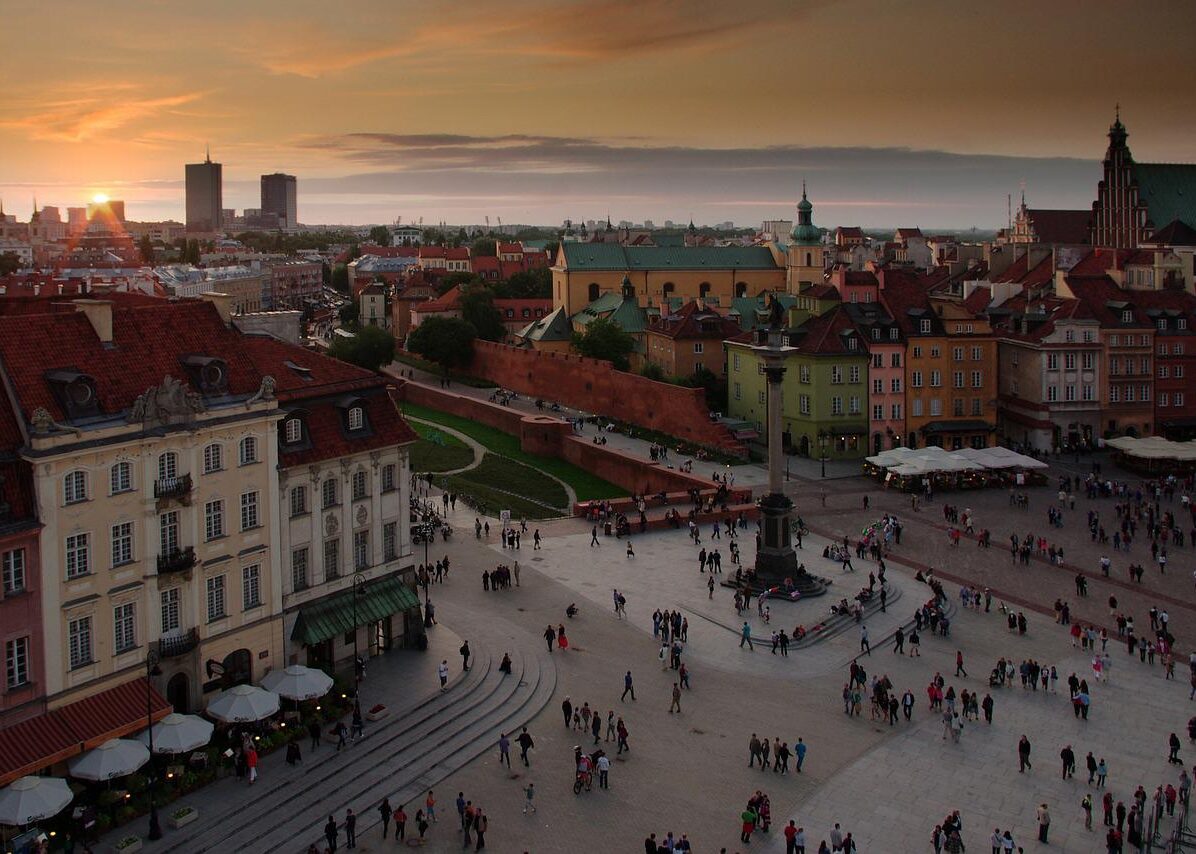
It should also be noted in passing that when lacking legal grounds, the European Commission exerts strong financial pressure on Poland and Hungary (but not on Spain) by withholding the Next Generation EU funds worth tens of billions of euros to impose the ideology of its members instead of promoting the general interest of the Union. And the ideology of its members is best illustrated by the fact that Malta’s Helena Dalli was, in her country, the author of the world’s first law promoting the rights of “intersex” people as part of her 2015 Gender Identity, Gender Expression and Sex Characteristics Act. As for Ursula von der Leyen, when she was Germany’s defense minister she actively promoted LGBT rights in the German army and was an advocate of transforming the EU into a federation modeled on Germany.
Rodrigo Ballester, a Spanish College of Europe graduate who is a former high-level civil servant in the European Commission, a long-time teacher at Sciences-Po Paris, and the current director of the Center for European Studies at the Mathias Corvinus Collegium in Hungary, explains in the following terms what the whole infringement procedure against Hungary is about, and this could apply to the procedure against Poland too, as well as to the financial blackmailing of both countries in relation to LGBT issues:
“The EU took Hungary to the European Court of Justice on account of its law on the protection of minors, the one banning sexual propaganda and gender indoctrination in schools, but what has the EU got to do with the sexual education of European kids? Absolutely nothing! The EU treaty is crystal clear about it: the content of education is a national competence. The EU must respect the full autonomy of Member States and parents in that matter. So how come there is a legal case against one country, and on what legal grounds? Actually, to drag Hungary in front of the court, the European Commission picked up random, unrelated legal bases to create a competence. For example, it claims that the Hungarian law goes against the free movement of goods, or the freedom to provide services, or that it infringes data protection, all grounds that are totally unrelated to education. And this is all it takes to claim that the Hungarian law is indeed an EU matter and to assess it against European values and the principle of non-discrimination. In that endeavor, the Commission is certainly not alone. A dozen EU Member States from Western Europe and the European Parliament decided to support the Commission’s lawsuit against Hungary in front of the Court of Justice, something that is very, very unusual. This case is very symptomatic. First, because it shows that the EU does not hesitate to go far beyond its competence and ignore the limits of the treaty in the name of ‘common values’. Second, because the EU is no longer a neutral place, as it takes sides for a specific ideology and tries to impose it upon some member states. Third, because gender ideology is absolutely pernicious to children and teenagers. In the name of inclusion and diversity, thousands of kids have been mutilated or chemically castrated. Fourth, because it forgets that parents have the right to educate their children.”
Like Von der Leyen, Dalli, and most other commissioners, and unlike Poland’s Mateusz Morawiecki and Hungary’s Viktor Orbán, Spanish Prime Minister Pedro Sánchez is a strong advocate of both the LGBTIQ agenda and a federal European Union. To quote the words of the vice-chair of Spain’s conservative Vox party, MEP Jorge Buxadé, “The Brussels machinery is ideologized with a strong left-wing and federalist bias. And as Sánchez, when he goes to Brussels, always agrees with them on everything, and Sánchez is the main executor of the whole globalist and federalist agenda in Spain, Brussels considers him an ally. For that reason, what is not allowed for Poland or Hungary is allowed for Sánchez.
